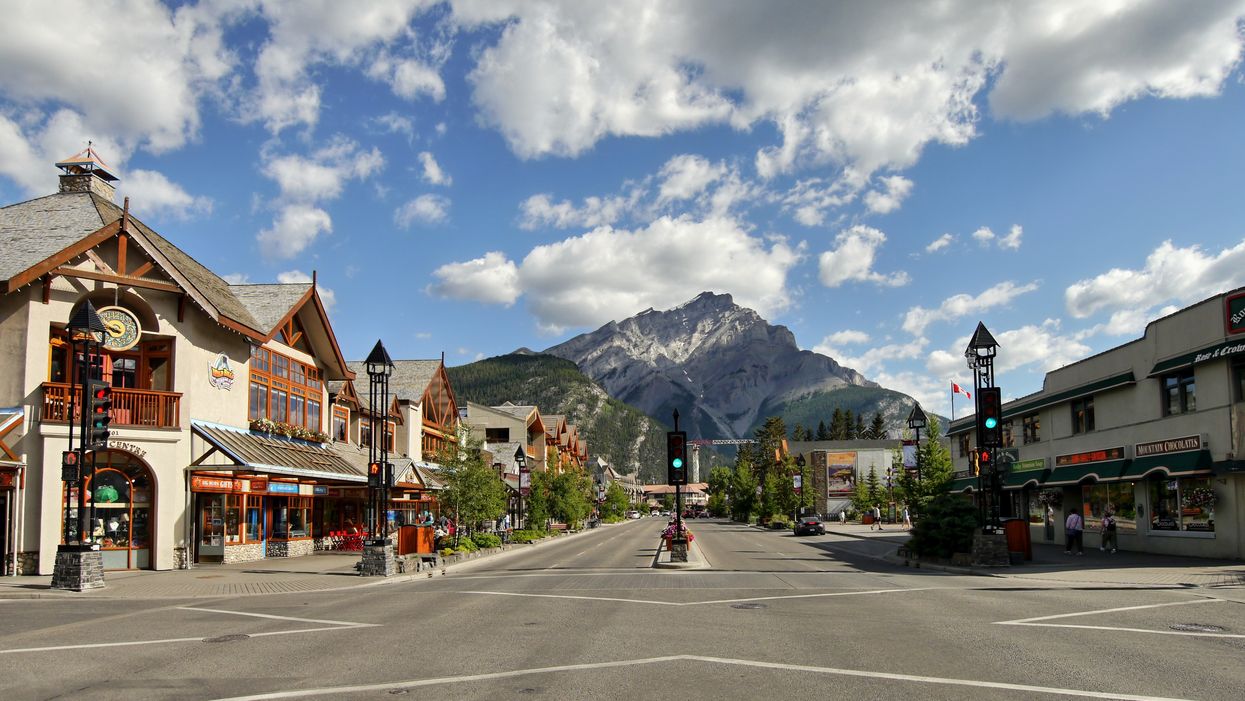A Texas Family Vacationing In Banff Reportedly Used A 'Loophole' To Enter Canada (VIDEO)
Apparently, it's still possible for Americans to sneak across the border for non-essential reasons. On June 6, a Facebook post revealed that a Texas family was spotted on vacation in the tourist town of Banff, Alberta. This Texas family in Banff reportedly found a border loophole that allowed them to enter Canada.
A woman named Pat Chen posted about the reported sighting on Facebook. At the time of writing, it has gotten over 5,700 shares.
"Today I heard from a friend who posted on her timeline a very disturbing situation happening in Banff and potentially across Canada," wrote Chen.
"A server in a newly opened restaurant in Banff went to serve a table of four. She asked them where they came from and was stunned to hear that they were from TEXAS! Up for a vacation."
According to Chen, the server asked the family how they got into Canada under the current circumstances.
This particular Texas family claimed that they found a loophole, through which they successfully gained entry into the Rockies hotspot.
"They told boarder patrol that they were driving to Alaska," Chen continued.
"They were let in. They are now wandering around Banff, no masks, no distancing, no 14 day quarantine."
The post claimed that another group from Seattle had also used the same loophole recently.
The Canada-U.S. border has been closed to non-essential travel since March.
Currently, only Canadian citizens, permanent residents, select immediate family members and essential workers are allowed to enter the country.
A media representative of Canada Border Services Agency (CBSA), Ashley Lemire, told CTV News about this Alaska loophole.
She said that foreigners who show no symptoms of COVID-19 are allowed to enter through the Canada-U.S. border for "non-discretionary" reasons.
According to CBSA, non-discretionary means "essential" or anything that's not optional.
Examples of discretionary travel include tourism, recreation, and entertainment, as mentioned on the agency's website. Narcity has reached out to the CBSA for more details on this.
Foreign nationals at the border are asked to use a drive-thru for getting food, and to purchase gas at the pump whenever possible, Lemire told CTV News. Wherever these travellers stop, they should practice social distancing.
When they are not actively travelling through the country, foreign visitors are "required to quarantine," said Lemire.
However, the CBSA's website states that non-essential visitors will be turned away at the border.
"Travellers who do not have a non-discretionary reason to travel to Canada will be denied entry by a border services officer," it reads.
